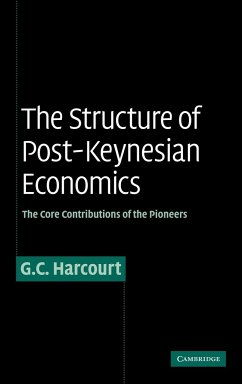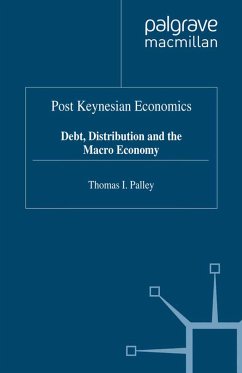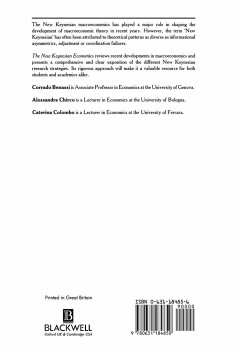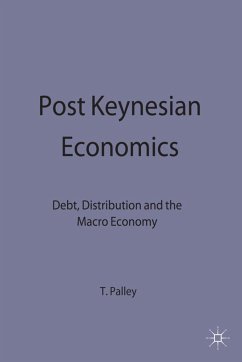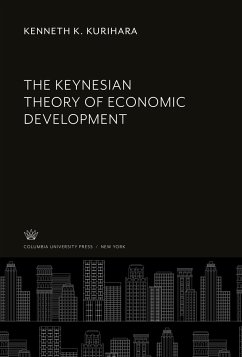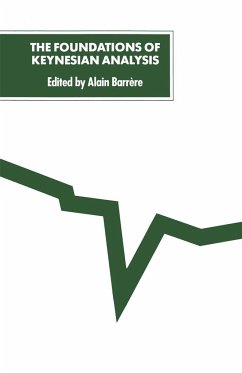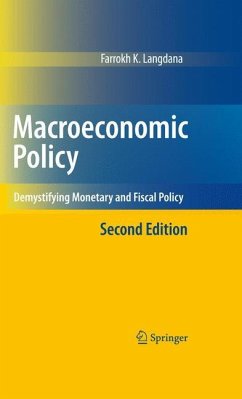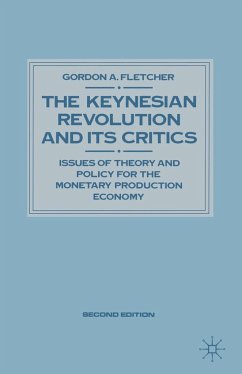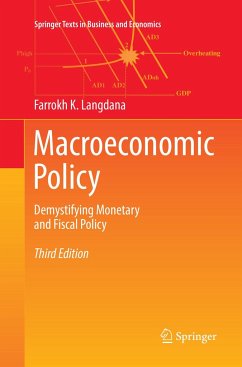
Post Keynesian Price Theory
Versandkostenfrei!
Versandfertig in 1-2 Wochen
111,99 €
inkl. MwSt.
Weitere Ausgaben:

PAYBACK Punkte
56 °P sammeln!
Frederic Lee sets out the foundations of a post-Keynesian price theory through developing an empirically grounded production schema. The administered, normal cost, and mark up price doctrines are explained in parts I-III of the book, as many of their theoretical arguments are important for developing the foundations. This involves discussing the work of Gardiner Means, Philip Andrews, and Michal Kalecki, as well as the developers of the doctrines, such as Edwin Nourse, Paolo Sylos Labini, Harry Edwards, Josef Steindl, and Alfred Eisner. Drawing upon the arguments and formal modelling offered b...
Frederic Lee sets out the foundations of a post-Keynesian price theory through developing an empirically grounded production schema. The administered, normal cost, and mark up price doctrines are explained in parts I-III of the book, as many of their theoretical arguments are important for developing the foundations. This involves discussing the work of Gardiner Means, Philip Andrews, and Michal Kalecki, as well as the developers of the doctrines, such as Edwin Nourse, Paolo Sylos Labini, Harry Edwards, Josef Steindl, and Alfred Eisner. Drawing upon the arguments and formal modelling offered by the doctrines, in conjunction with empirical evidence from one hundred studies on pricing and production, Dr Lee develops an empirically grounded pricing model and production schema. He argues that the model and the schema together constitute the foundations for post-Keynesian price theory.
Table of contents:
Introduction; Part I. Doctrine of Administered Prices: 1. Origin of the doctrine of administered prices: from the modern corporation to industrial prices; 2. Gardiner Mean's doctrine of administered prices; 3. Developments in the doctrine of administered prices; Part II. Doctrine of Normal Cost Prices: 4. Origin of the doctrine of normal cost prices: the Oxford Economists' Research Group and full cost pricing; 5. Philip Andrew's theory of competitive oligopoly; 6. Developments in the doctrine of normal cost prices; Part III. Doctrine of Mark Up Prices: 7. Origin of the doctrine of mark up prices: Michal Kalecki's microanalysis; 8. Kalecki's microanalysis and the war years; 9. Kalecki and the Cambridge contributions; 10. Josef Steindl and the stagnation thesis; Part IV. The Grounded Pricing Foundation of Post-Keynesian Price Theory: 11. Pricing and prices; 12. Pricing Model, grounded pricing foundation, and Post-Keynesian price theory; Appendices.
This book sets out the foundations of post-Keynesian price theory. Blending theory and analysis it is the first comprehensive assessment of post-Keynesian price theory and its foundations. Scholars and students will particularly welcome the emphasis on the non-neoclassical and non-equilibrium nature of post-Keynesian price theory.
This book sets out the foundations of post-Keynesian price theory.
Table of contents:
Introduction; Part I. Doctrine of Administered Prices: 1. Origin of the doctrine of administered prices: from the modern corporation to industrial prices; 2. Gardiner Mean's doctrine of administered prices; 3. Developments in the doctrine of administered prices; Part II. Doctrine of Normal Cost Prices: 4. Origin of the doctrine of normal cost prices: the Oxford Economists' Research Group and full cost pricing; 5. Philip Andrew's theory of competitive oligopoly; 6. Developments in the doctrine of normal cost prices; Part III. Doctrine of Mark Up Prices: 7. Origin of the doctrine of mark up prices: Michal Kalecki's microanalysis; 8. Kalecki's microanalysis and the war years; 9. Kalecki and the Cambridge contributions; 10. Josef Steindl and the stagnation thesis; Part IV. The Grounded Pricing Foundation of Post-Keynesian Price Theory: 11. Pricing and prices; 12. Pricing Model, grounded pricing foundation, and Post-Keynesian price theory; Appendices.
This book sets out the foundations of post-Keynesian price theory. Blending theory and analysis it is the first comprehensive assessment of post-Keynesian price theory and its foundations. Scholars and students will particularly welcome the emphasis on the non-neoclassical and non-equilibrium nature of post-Keynesian price theory.
This book sets out the foundations of post-Keynesian price theory.





